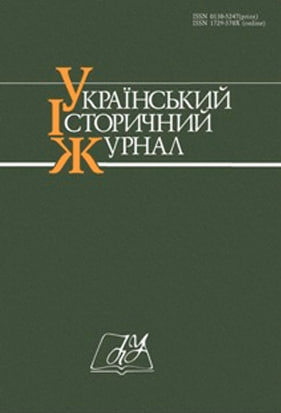A Person of the “Second Place” in History: the Case of Epifanio Prizzi, or the Adventures of the Italian “Insolent” in UkrSSR
Keywords:
Epifanio (Dino) Prizzi, pop singer, repatriation, Australia, KGB (Committee for State Security), Committee of Return to the Motherland, person of the “second place” in history., Epifanio (Dino) Prizzi, pop singer, repatriation, Australia, KGB (Committee for State Security), Committee of Return to the Motherland, person of the “second place” in historyAbstract
The purpose is to reconstruct the main milestones of the biography of the Sicilian native Epifanio (Dino) Prizzi — a talented, free, and original person who did not betray himself under any circumstances. The main focus is on his stay in Soviet Ukraine and his work as a tenor singer in the Zaporizhzhia Regional State Philharmonic, where he got with his Ukrainian wife through repatriation.
The methodological foundations were the anthropological approach, the methods of microhistory, and the definition of the topical area as a person of the “second place” in history, which allows combining the individual and the mass, the person and the social environment of his time.
The Scientific novelty consists in revealing the source potential of the Branch State Archive of the Security Service of Ukraine for the study of the “average person” who chose different life strategies in the conditions of the totalitarian USSR.
Conclusions. E. Prizzi appears as a lover of life and an adventurer, who during the stormy and ambiguous 20th century, lived a long, interesting and full life, changed many professions, fields of activity and countries and fulfilled his dream — gained recognition at the professional stage and helped others to do it. Our hero realized himself not only as a singer but also as an actor, TV and radio presenter, businessman, public figure, and philanthropist; he was a happy husband, father, and grandfather, traveled a lot, and died at the peak of popularity in Australia. The activity of the KGB and the Committee of Return to the Motherland, their specific methods of operational work with foreigners and repatriates which demonstrate the inhumane face of the Soviet regime, violation of elementary human rights, over-bureaucratization and biased of the entire vertical of power, for the maintenance of which inadequately enormous public funds were spent, are highlighted.


